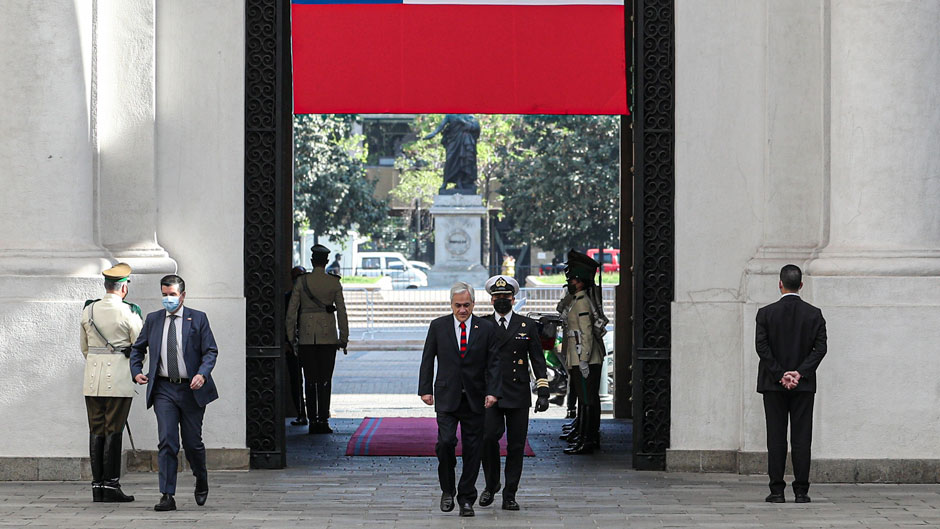On the last Sunday in October, in a plebiscite postponed by the pandemic, Chileans voted overwhelmingly to redraft the country’s constitution and to elect a constitutional assembly composed wholly of ordinary citizens and 50-percent women to undertake the task.
Nearly four in five Chileans approved the plebiscite to rewrite the constitution set in place by General Augusto Pinochet in 1980.
“The referendum is an amazing historical opportunity for change, but those in Chile who do not favor change will still have significant control and influence during the process,” said Laura Gómez-Mera, a University of Miami associate professor of political science with expertise in international political economy.
She noted particularly that, as part of an earlier concession for the plebiscite to take place, the new constitution will require a two-thirds congressional approval. And if not achieved, the current constitution will remain in effect. “That kind of requirement could be paralyzing and make the drafting much harder than a simple majority,” she added.
Calla Hummel, an assistant professor in the Department of Political Science at the College of Arts and Sciences, noted that the current constitution has been a target of frustration for many in the country for a long time.
“The constitution was never accepted by a lot of Chileans because it was written under a dictatorship without broad participation from the populace, so a lot of people have wanted constitutional reform and have succeeded in amending the constitution many times over the last few decades,” she said. “Yet, this is the first broad-based push for a new constitution since Chile’s transition to democracy.”
The road to the referendum launched in October 2019 when the government imposed a 4-percent hike in the cost of public transportation—which amounted to 14 percent of the daily wage of a poor Chilean. The move sparked student protests that were initially peaceful.
“The referendum comes out of the huge protests that rocked Chile for weeks leading into months and into the fall of 2019 that were largely an outpouring of frustration with the [Sebastián] Piñera administration and more broadly the inequality with wages,” explained Hummel, who conducts research in Bolivia and Brazil. “The constitution wasn’t even on the radar when the protests started.”
When met with harsh police retaliation, the protests resulted in violence with deaths, hundreds injured, and looting and arson. To mediate an end, the government and protest groups entered talks—and the constitution emerged as a talking point, Hummel said. The president’s willingness to engage in talks was influenced by his poor approval ratings that worsened even further as a result of the pandemic, she added.
“He’s had his back to the wall for quite a while. When the protests happened, he was at record low approval and, while compared with other countries in the region, Piñera has done pretty well handling the COVID-19 outbreak, Chileans do not recognize him as doing a good job,” she said.
The movement lacks a central leader, yet a number of groups representing workers, teachers, and indigenous groups have coalesced to advance the cause.
“It’s disorganized, but effective enough to highlight the need for deep political reforms and the discontent in society,” said Gómez-Mera. She noted that despite Chile’s reputation over many years as a success story of market reforms with high-growth foreign investments and lots of trade agreements, the prosperity has remained concentrated.
The Gini index or ratio, the most widely used measure of inequality or wealth distribution, ranks Chile as one of the most unequal countries in the world among the 30 wealthiest.
Gómez-Mera noted that after the transition to democracy began in 1990, the country has had several social democratic and center-left governments, yet none of those administrations significantly addressed the persistent social ills.
“It’s surprising and shows the disconnect between a small elite that concentrates not only the economic but also the political power and that is not representing the needs of a large segment of the population,” Gómez-Mera said. She referred to the popular slogan, “No son 30 pesos, son 30 años,” meaning that though it’s been 30 years since democracy was restored, many still don’t feel included.
Gómez-Mera said that in addition to the clause that proffers veto power to one-third plus one of the National Congress over a new constitution, the election of candidates to the assembly presents another challenge. Representatives will need to be elected, and to be elected they’ll need political support or affiliation.
“The risk is that political parties may still be very dominant in the process, so politically affiliated candidates will have an advantage over an independent or indigenous one,” she said. “The actual makeup of the convention after the elections is going to be a key determinant of the content.”
Hummel echoed that while many in Chile hope for a range of improvements—greater rights for labor unions, health care, and education as fundamental rights, guaranteed equality for women, and greater autonomy to Indigenous groups—the referendum, for now, is a first step.
“There are lots of possibilities and hopes, but the referendum isn’t about anything in particular beyond should the constitution be rewritten and who should do that,” she said. “Where this process is going to get a lot messier is when the constitutional assembly sits down to figure out what to put in the documents—and that could take years.”

